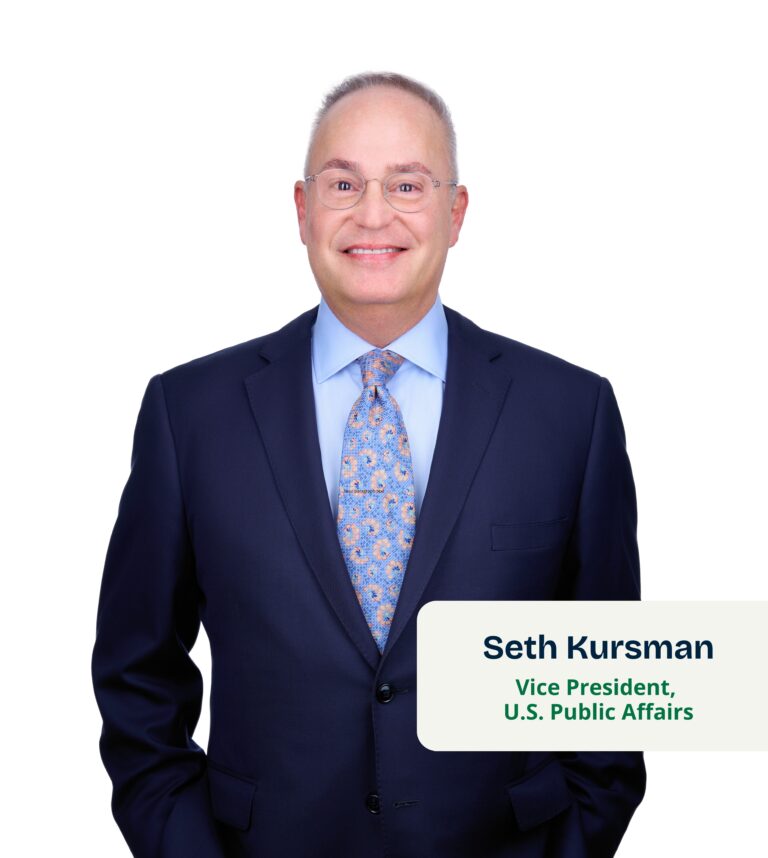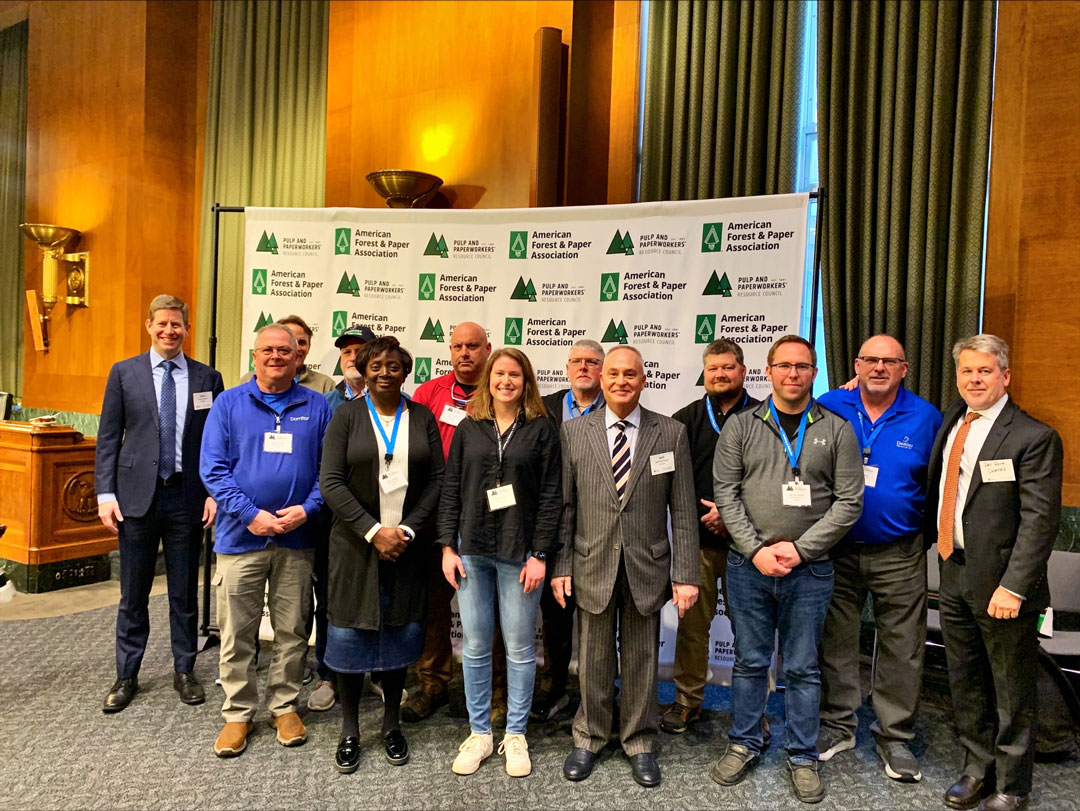BY: Colleen Marble
Over the years, Domtar’s political advocacy efforts have helped lawmakers, consumers and others better understand the role our industry plays in everyday life, and the effects that legislation and regulation can have on the way we source, manufacture, sell, use and reuse forest products.
To learn more about these political advocacy efforts and the issues our industry is facing in 2025, we spoke with Seth Kursman, Domtar’s vice president of U.S. Public Affairs. He’s part of a larger Domtar Public Affairs team that is charged with representing our interests to the public and to assorted industry organizations, government bodies and a range of other stakeholders in the United States.

Why is it important for Domtar to have a voice not only for itself but also for the forest products industry as a whole?
We believe that as long as politics remains involved in our business, we must be involved in the business of politics. Decisions made at the federal, state, provincial and local levels affect our jobs and our everyday lives. It’s our responsibility to educate and inform lawmakers and other decision makers. There are many competing interests, and our voices, as individuals and as a collective, make a difference.
If we don’t participate in the process, we’re essentially allowing others to dictate the future in which we will live and do business. Even well-intentioned policies can have unintended consequences, so we try to mitigate those risks as well as seek out opportunities that benefit Domtar.
What specific legislative and regulatory issues are top of mind for Domtar in 2025?
We’re actively involved in political advocacy around a wide range of issues, such as regulatory reform, transportation concerns, tax proposals, environmental matters, trade issues, postal reform and energy policy. All of these directly affect our day-to-day business. We’re also very concerned about demand destruction for the products we make, so we monitor and speak out on issues like “go paperless” campaigns, receipt bans and postal policies that we believe affect not only our business but also the educational, financial and social wellbeing of consumers.
Our political advocacy isn’t limited to the federal level. Many of these issues, including extended producer responsibility (EPR) legislation and environmental regulations, are also debated at the state or provincial level, and even on a regional level and local basis. And beyond our own borders, we’re representing our interests on matters such as tariffs, European Union deforestation regulations and other trade, transportation and energy concerns.
The best way to address these issues is with open, transparent discussion. Domtar’s operations are located in North America, but we are a global company, marketing our products to more than 60 countries. That means our political advocacy should, at times, extend outside our borders as we protect the interests of our industry, our company, our employees and our customers around the world.
How does Domtar engage with policymakers and government agencies to promote the interests of the forest products industry?
There’s a saying made popular by U.S. politician Tip O’Neill: “All politics is local.” It’s certainly true, not only in the United States but probably just about everywhere around the globe. People who work for our company and our industry are also voters. They have their own perspectives, and they have an opportunity to voice those perspectives to elected officials. We support grassroots engagement, as one should never underestimate the value of someone sitting at their kitchen table and writing a note or picking up the phone to express their opinion to the person who represents them. To me, that’s the most powerful advocacy of all.
We’re also engaged in local organizations, such as chambers of commerce, as well as state, provincial and national organizations that help amplify our voice and our political advocacy efforts. We’re proud partners with the American Forest and Paper Association (AF&PA) and the Forest Products Association of Canada (FPAC), and we’re involved with the National Association of Manufacturers, among other industry organizations. These organizations are unapologetic advocates for our industry and manufacturing interests.
Beyond that, we participate in events that give our company and our employees an opportunity to meet face-to-face with lawmakers. This past October, we joined other members of the Paper Receipts Converting Association (PRCA) for a fly-in event in Washington, D.C. That gave us an opportunity to speak directly to lawmakers on Capitol Hill about the importance of paper receipts to the U.S. economy, as well as bring awareness to the fact that some importers are evading duties, which presents a clear challenge to domestic manufacturers like Domtar.
And just recently, a group of 11 Domtar employees representing 5 of our U.S. mills participated in the annual Pulp & Paperworkers’ Resource Council (PPRC) Washington, D.C., fly-in. They joined other pulp and paper workers from across the nation to speak with members of Congress about issues affecting American manufacturing jobs in our industry. That kind of grassroots advocacy helps us continue to look out for the best interests of all of our employees. It carries a lot of weight when hard-working citizens walk the halls of Senate and House office buildings sharing their concerns with their elected representatives.
Finally, we’re proud to have a political action committee supported by eligible Domtar employee volunteers. The Domtar PAC helps us build relationships with U.S. policymakers. A single legislative decision can have an enormous impact on our ability to operate and pursue strategic objectives; the key to affecting policy change is to actively participate in the discussions that are shaping these decisions. The Domtar PAC helps us engage in political advocacy through one-on-one meetings with lawmakers and officials, as well as other activities that help enhance understanding of our business.
How do you measure success when it comes to Domtar’s political advocacy efforts?
When it comes to public policy, there’s often a quantifiable impact on our bottom line —measurable savings, cost reductions and the like. We also look at how these issues affect the health of our people and the environment, as well as the socioeconomic wellbeing of our operating communities. These aren’t nebulous issues with vague impacts on our industry and society. They’re measurable, and that certainly guides the work that we do.

